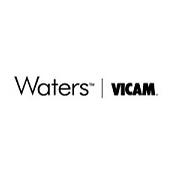High zinc glycinate concentration on host immune response in necrotic enteritis in broiler chickens
Necrotic enteritis (NE) costs over US$6 billion a year. The causative agents of NE in chickens is Clostridium perfringens predisposed with coccidiosis. Since the discontinued use of antibiotics in poultry production, alternative methods to alleviate NE infections are being explored. Zinc is involved in pathways in metabolism and immunity such as the zinc-finger motif in DNA polymerase, the NFκB inflammation transcription factor, and the antioxidant enzyme, zinc/copper superoxide dismutase. The current recommendation of zinc in chicken diets is 100 mg/kg by poultry producer guidelines. Therefore, we hypothesized that a higher concentration of zinc is required to alleviate NE in chickens. In this study, we conducted two experiments to evaluate the effects of zinc glycinate on necrotic enteritis infection in broiler chickens. In experiment one, the birds were supplemented with 40, 80, and 120 mg/kg of zinc glycinate. The birds were infected using our necrotic enteritis infection model. Briefly, Eimeria maxima at 5,000 oocysts/ml were orally gavaged on day 14 and Clostridium perfringens at 108 CFU/ml was orally gavaged on day 19, 20, and 21. Samples were collected on day 21 for analyses. In the follow-up experiment, the birds were supplemented with 100, 120, 140, and 160 mg/ kg of zinc glycinate. In the first experiment, growth performance was not affected by zinc. However, intestinal damages as evaluated by lesion scoring was alleviated by zinc glycinate at 120 mg/kg (P < 0.01). Cytokine gene expressions were downregulated by higher concentration of zinc glycinate in infected birds, but not statistically different. In the follow-up experiment, feed conversion ratio was improved by zinc glycinate at 160 mg/kg in infected birds (P < 0.01) and weight gain was improved by zinc glycinate at 120 mg/kg (P < 0.01). Lesions was alleviated (P < 0.01) and mortality was reduced (P < 0.01) by zinc glycinate at 120 mg/kg. In conclusion, our findings suggested that zinc glycinate concentration at 120 mg/kg would be beneficial to alleviate NE infection. Given that zinc glycinate has a higher bioavailability than zinc sulfate, a higher concentration than 120 mg/kg zinc sulfate may be optimal.
Key Words: Nutrition, Poultry, Zinc, Necrotic Enteritis, Immunology.
Poster presented at the International Poultry Scientific Forum during IPPE 2020.








.jpg&w=3840&q=75)